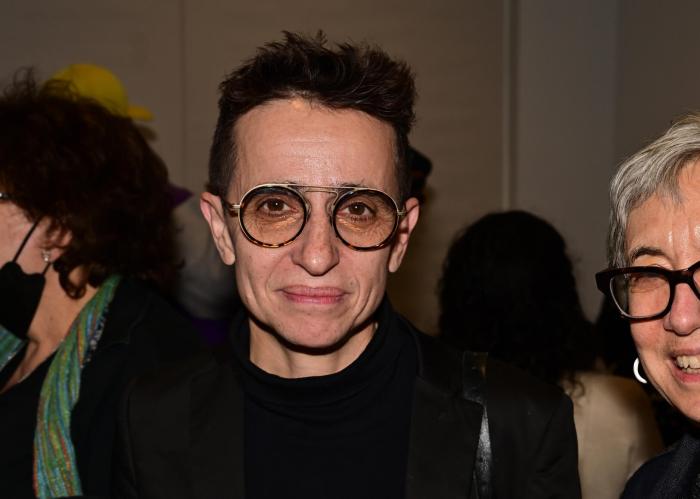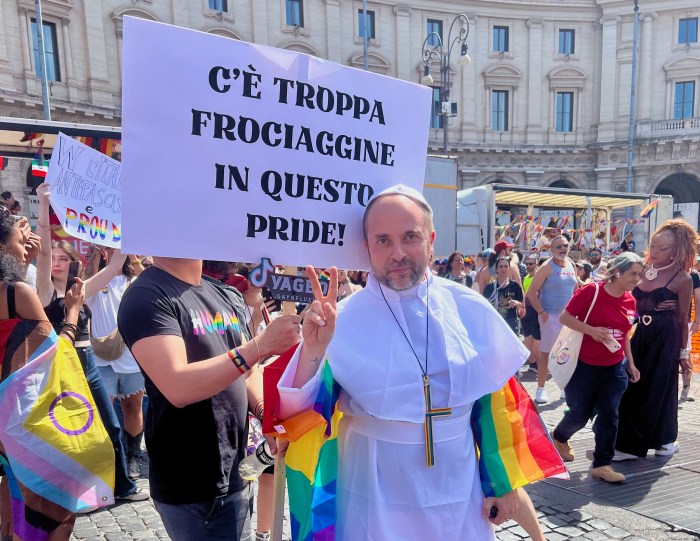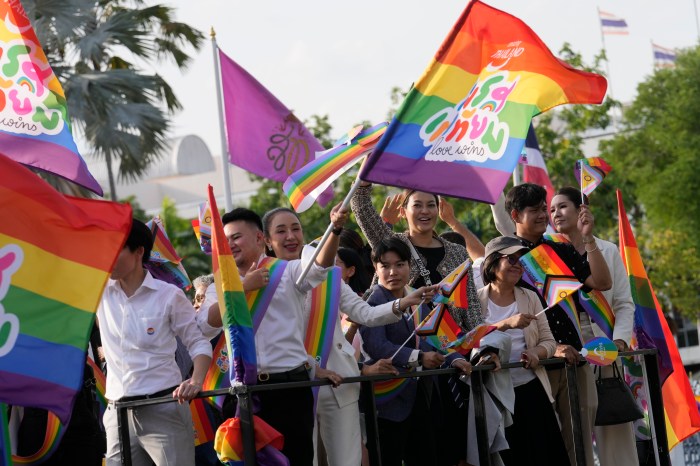BY ARTHUR S. LEONARD |A “grand chamber” of 17 judges of the European Court of Human Rights ruled on January 22 that France violated provisions of the European Convention on Human Rights when its government refused to certify a lesbian as qualified to be an adoptive parent.
Even though the court's vote was 10-7, a number of the dissenters agreed that sexual orientation may not be a disqualifying factor in adoption but accepted another rationale relied on by the French government.
The applicant, identified as E.B., sought to adopt in 1998, when she was 37 years old and had been in a “stable relationship” with another woman for eight years. She and her partner, M.R., had not formalized their relationship in a civil pact (the equivalent of a legal domestic partnership), and her partner was characterized as “indifferent” to the adoption, seeing it basically as E.B.'s project.
Lesbian sustains bias claim against French authorities
French law specifically authorizes single people to adopt, and does not expressly bar gay people.
Local officials investigating the application noted E.B.'s strong potential as a good parent, but expressed two concerns, noting her partner's lack of interest in playing a parental role and that when asked who would serve as a male parental figure, E.B. had pointed to her father and her brother-in-law.
These two objections proved decisive as the case moved through France's bureaucracy and its courts. E.B. complained to the Conseil d'Etat, France's highest administrative authority that she was suffering sexual orientation discrimination because the official French record included references to her “lifestyle” as a reason to reject her application. The Conseil d'Etat responded that given E.B.'s “stable homosexual relationship” with M.R., “that relationship had to be taken into consideration in the needs and interests of an adopted child.”
The European Court recently rejected a similar appeal filed by a gay man from France, and has never recognized an adult's right to adopt a child, treating adoption as a privilege, as US courts also do. The court, however, found factual distinctions between E.B.'s case and the earlier one and noted that even though concerns about M.R.'s relationship with the child were potentially germane to the adoption petition the French authorities' denial was “contaminated” by anti-gay considerations, reflected in references to her homosexuality and “lifestyle.”
The court ruled that even though adoption is a privilege, France is barred from discriminating on the basis of sexual orientation in administering its system. The gay man who lost the earlier case was viewed as not being prepared for the “practical consequences” of raising a child. E.B., in contrast, is a nursery school teacher judged a fit parent by the psychologists involved in her case.
The concerns raised by French authorities about the lack of a male paternal figure posed the risk, in the view of the court, of “of rendering ineffective the right of single persons” to adopt. That rationale may “have served as a pretext for rejecting the applicant's application on grounds of her homosexuality.” The court found that the French government had the burden of providing statistical evidence that this objection was not being discriminatorily applied to E.B. because she is a lesbian.
The court, however, found merit in the French authorities' concerns about the attitude of E.B.'s partner toward the adoption.
“It would moreover be surprising, to say the least, if the relevant authorities, having been informed of the existence of a de facto couple, pretended to be unaware of that fact when assessing the conditions in which the child would be given a home and his future life in that new home,” the court wrote. This concern had nothing to do with E.B.'s sexual orientation, in the court's view.
However, even if that factor constituted a legitimate ground for denying E.B.'s adoption petition, the problems otherwise apparent in the way French authorities handled the case “has the effect of contaminating the entire decision.”
Local French authorities stated they were not swayed by E.B.'s lesbianism, but the court found reason to doubt their disclaimers.
“The Court considers that the reference to the applicant's homosexuality was, if not explicit, at least implicit,” the ruling read. “The influence of the applicant's avowed homosexuality on the assessment of her application has been established and, having regard to the foregoing, was a decisive factor leading to the decision to refuse her authorisation to adopt.”
Given that E.B. is now 46, and less likely to look toward adopting a small child, the court concluded she is entitled to compensation for her loss of opportunity to adopt, as well as for her legal fees. At current euro-to-dollar exchange rates, the compensatory award was nearly $15,000 and the legal fee award was just over $20,000.
A number of the dissenters did not challenge the notion that sexual orientation was an impermissible grounds for deciding an adoption case, but rather did not agree that the decision by the French authorities was fatally “contaminated.” Given that international standards place the best interest of the child above every other concern, the French authorities were entitled to deny adoption to a cohabiting adult whose partner was not also committed to parenting the child, in the dissenters' view.
Only a handful of the judges accepted the paternal role model argument or expressed reservations about gay people raising children.
Given that the European Court of Human Rights' judges are drawn from more than 40 countries with extraordinarily diverse national legal systems, the near unanimity in rejecting any argument that gays should simply not be allowed to adopt is worth noting.
According to Euro News, adoption by gay couples remains illegal in France, though nine other European nations – Spain, the UK, Germany, Belgium, Denmark, Iceland, Norway, the Netherlands, and Sweden – permit it.


































